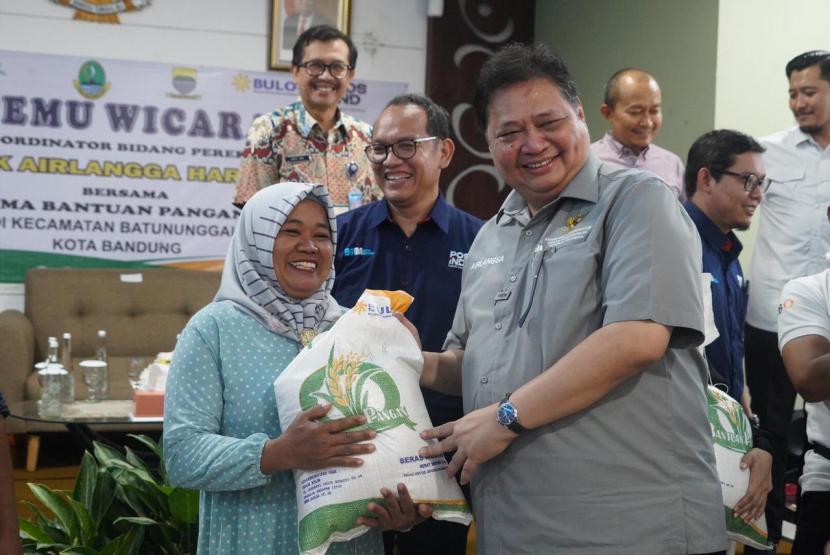REPUBLIKA.CO.ID, JAKARTA -- Head of the National Food Agency (Bapanas), Arief Prasetyo Adi, informed on Monday that more than 89 million low-income people have so far benefited from the monthly distribution of rice aid by the government.
"They (low-income people) are the lowest part of our society. They need our economic support. The government has been able to provide a social cushion for them," he informed while accompanying President Joko Widodo to distribute rice aid.
State-run logistics company PT Bulog has been distributing 10 kilograms of rice assistance to beneficiaries every month. According to Adi, the aid distribution will continue until June 2024 and will target 22 million beneficiary families (KPM).
The number is up around 8 percent compared to last year's figure, adjusted to the Targeting for the Acceleration of Extreme Poverty Elimination (P3KE) data managed by the Coordinating Ministry for Human Development and Culture.
The total number of KPM is 22,004,077 families consisting of 6,878,649 decile 1 families, 7,474,796 decile 2 families, and 7,650,632 decile 3 families, Adi said.
The P3KE is a system that contains data by name, by address, and by Population Identification Number (NIK). It contains information on around 80 percent of the population, sorted based on their welfare ranking.
"National rice stock currently stands at 1.4 million tons. This rice aid (distribution) requires 240–250 thousand tons per month. Every week, we conduct a meeting to ensure the stock availability. All Bulog warehouses have sufficient rice in stock," Adi assured.
He informed that ideally, strategic food stocks must be sourced from domestic production. However, if there is a projected decline in production, risk anticipation measures can be implemented.
Statistics Indonesia (BPS) has projected that rice production may experience a decline in January and February 2024, he noted. Therefore, imports are being carried out by Bulog to maintain the government's rice stocks.
"In shortage conditions like now, if Bulog plans to absorb domestic rice production, it will actually boost the rice price. In the end, it will decrease people's purchasing power and cause inflation. Bulog will absorb rice from farmers when the price starts to decline, especially during the harvest season," he explained.


